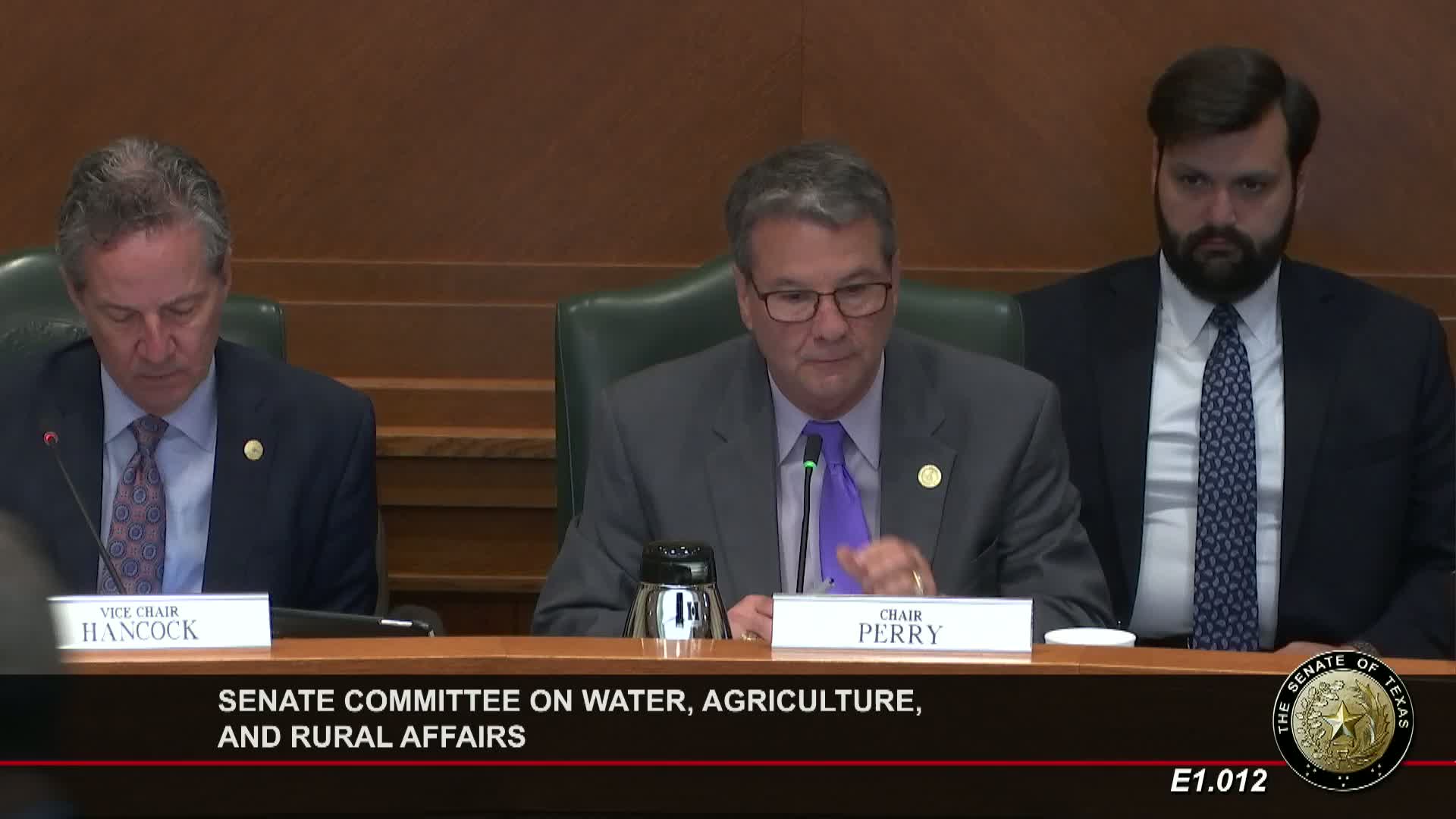Article not found
This article is no longer available. But don't worry—we've gathered other articles that discuss the same topic.
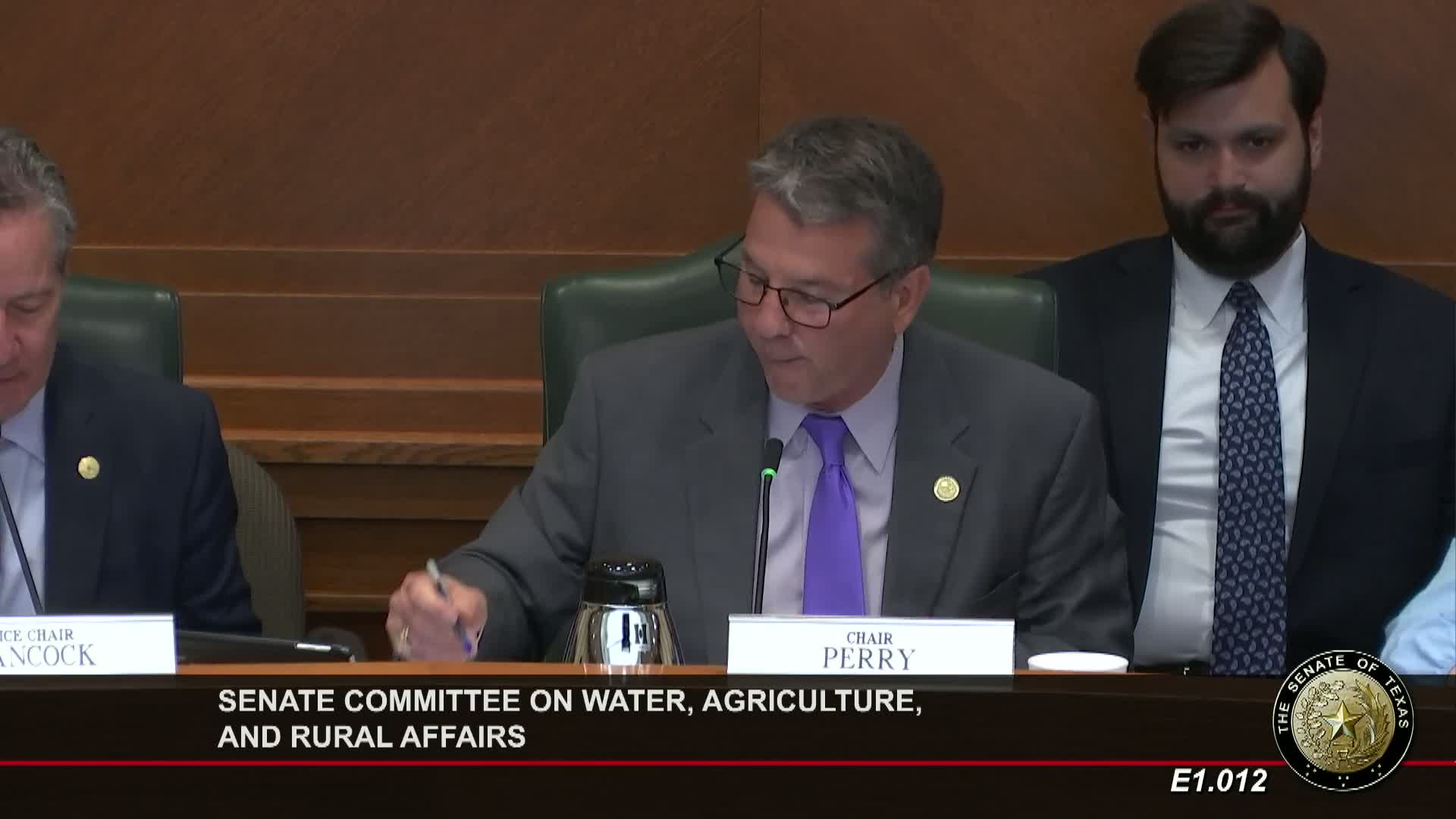
Committee substitute for Northeast Texas Municipal Water District bill narrows city oversight for water‑sale approvals
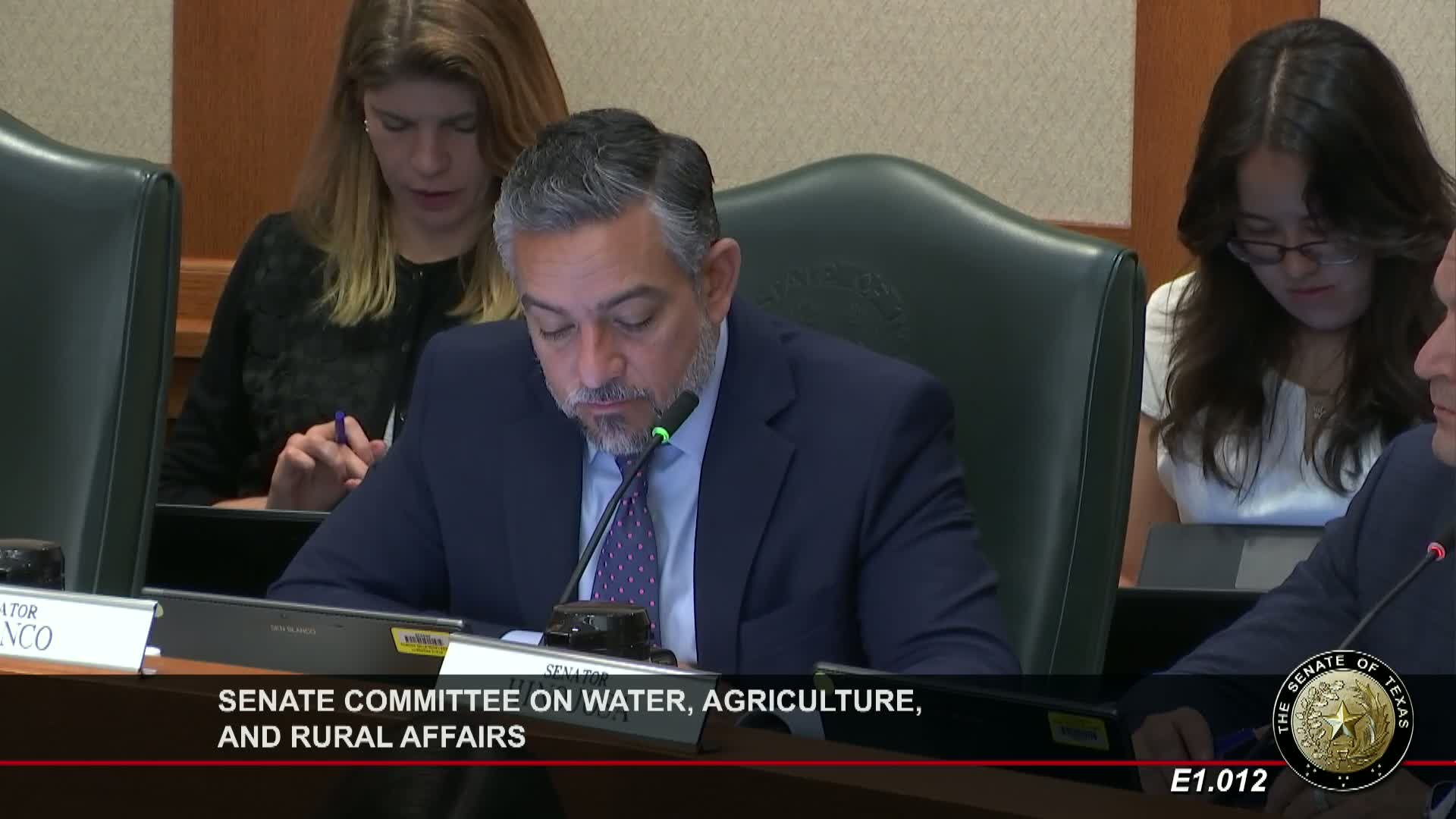
Committee adopts protection for Devil’s River: new restriction on treated wastewater discharges in Val Verde County
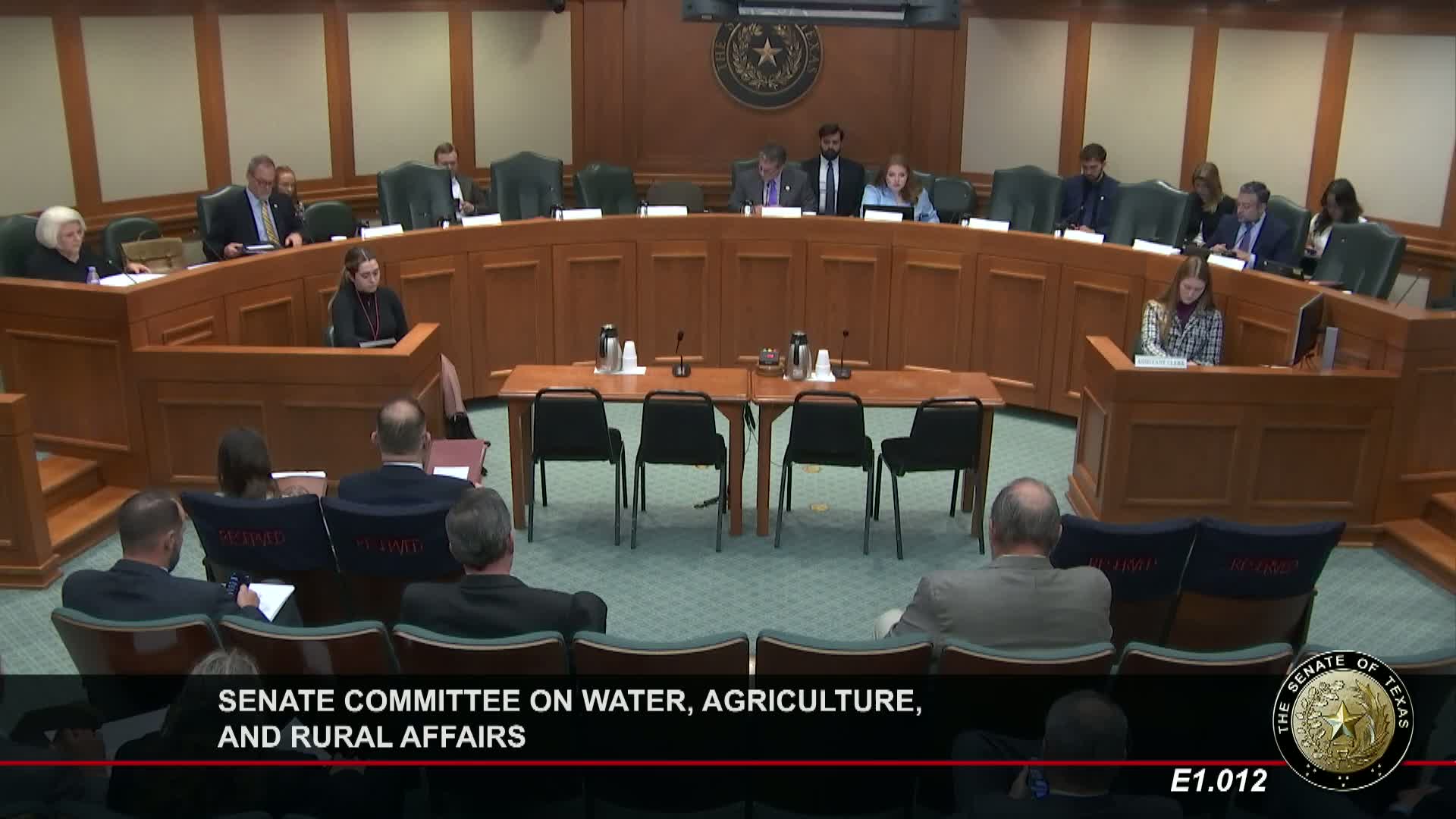
Committee hears bill to let TWDB fund brackish desalination for border counties
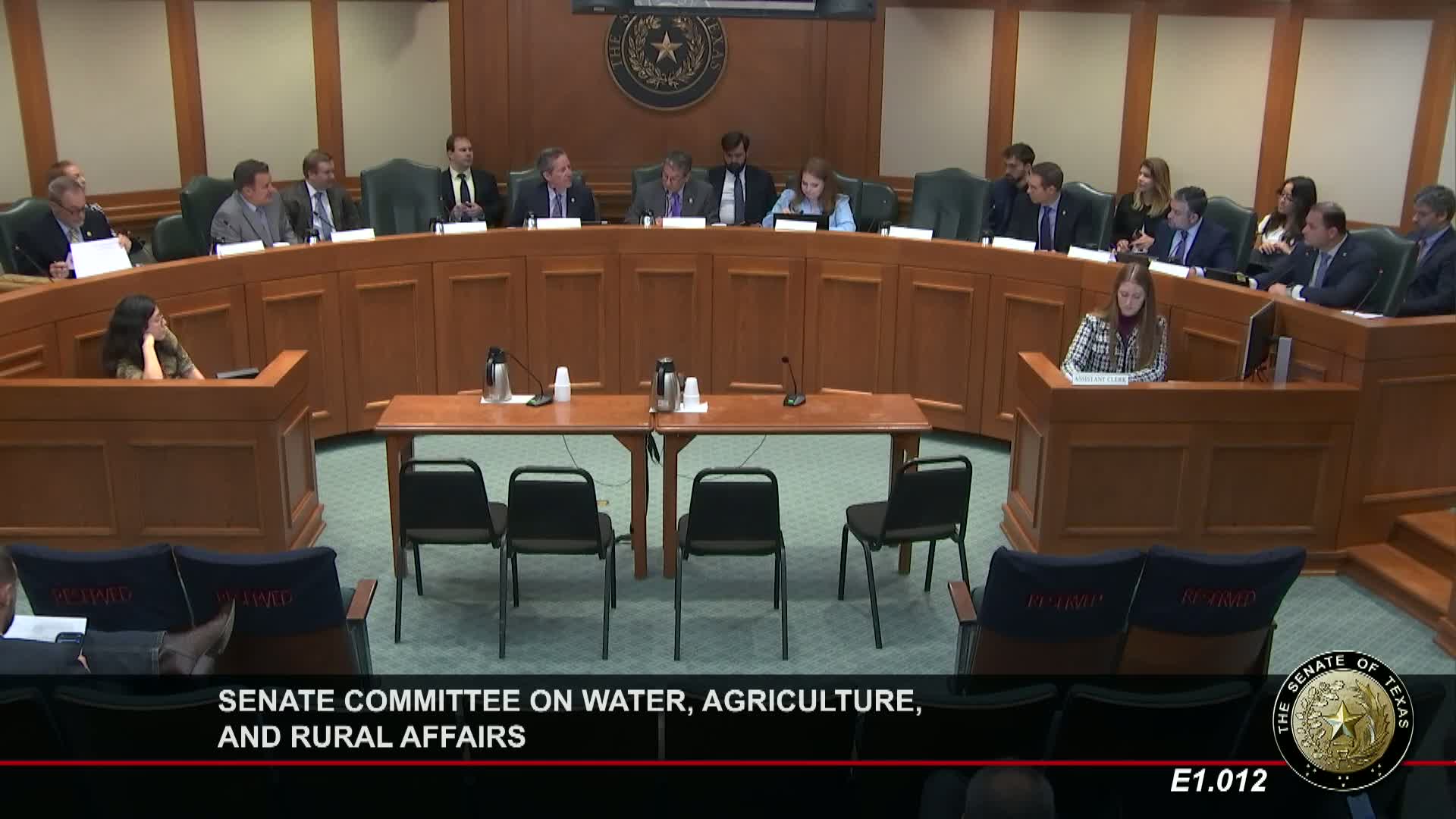
Committee clarifies TCEQ review‑panel process for disputes with groundwater conservation districts
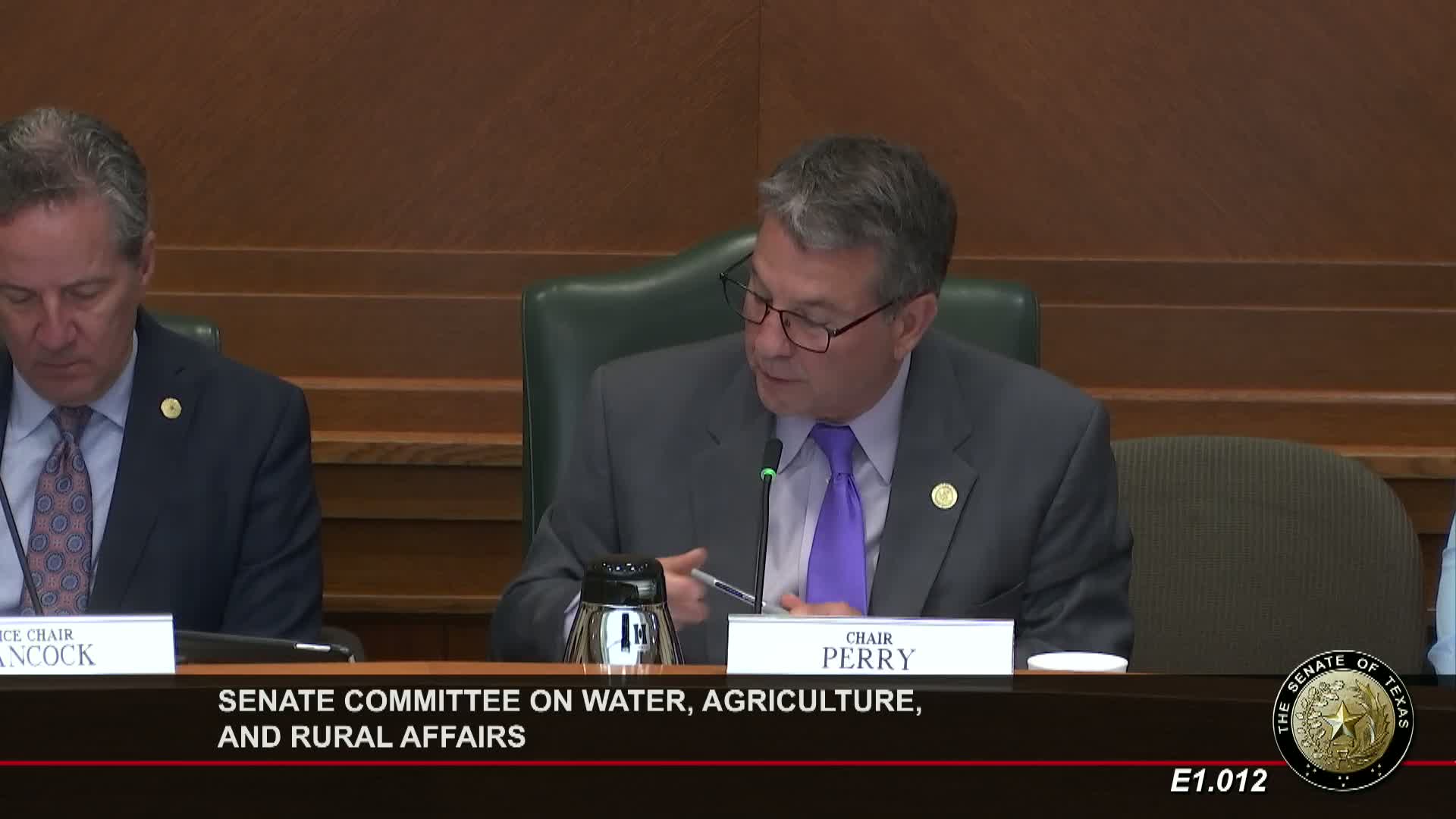
Committee debates tracking and accountability for groundwater conservation districts’ 50‑year goals
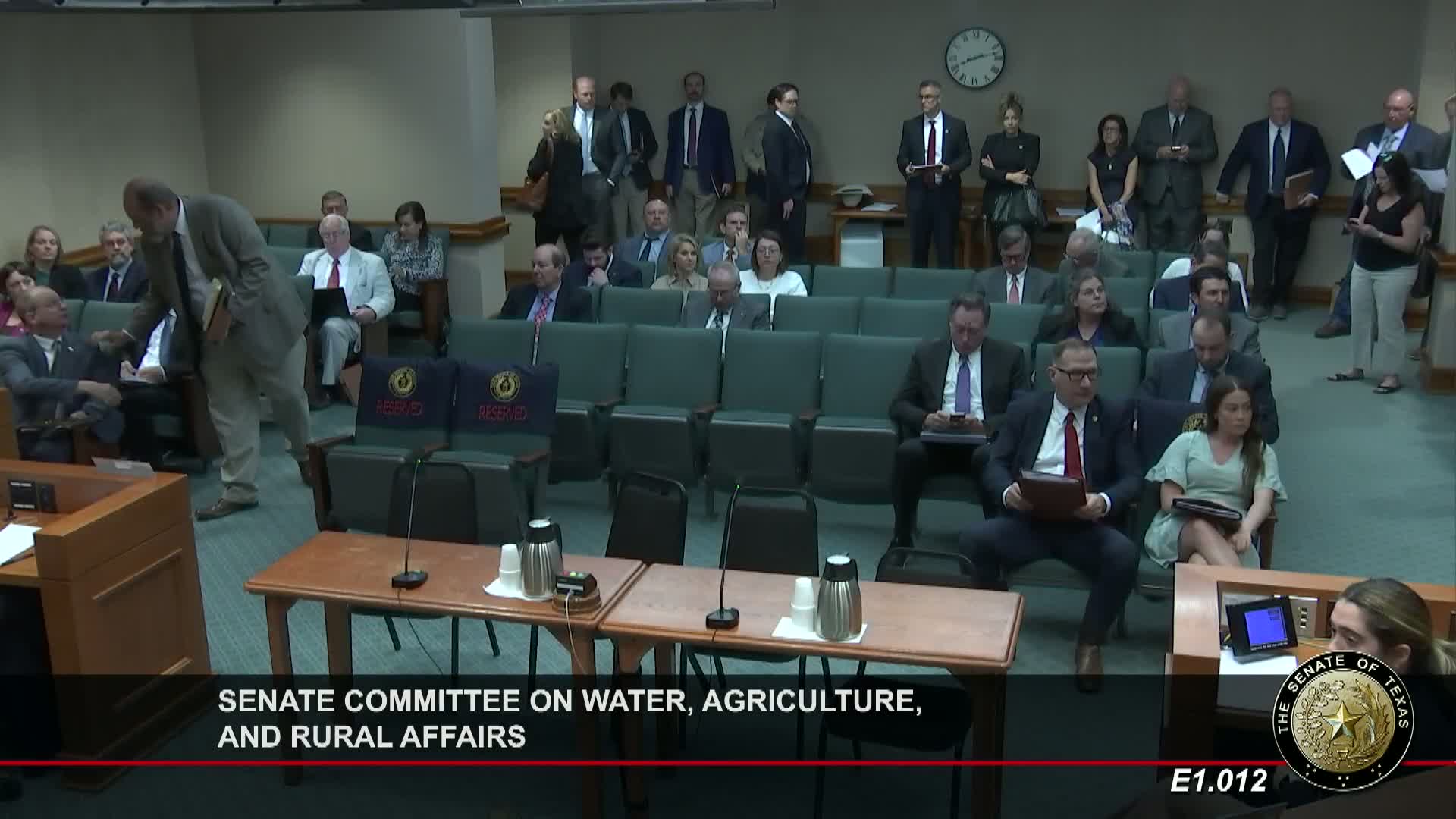
Committee hears bill to create higher‑education grants for regenerative agriculture research
